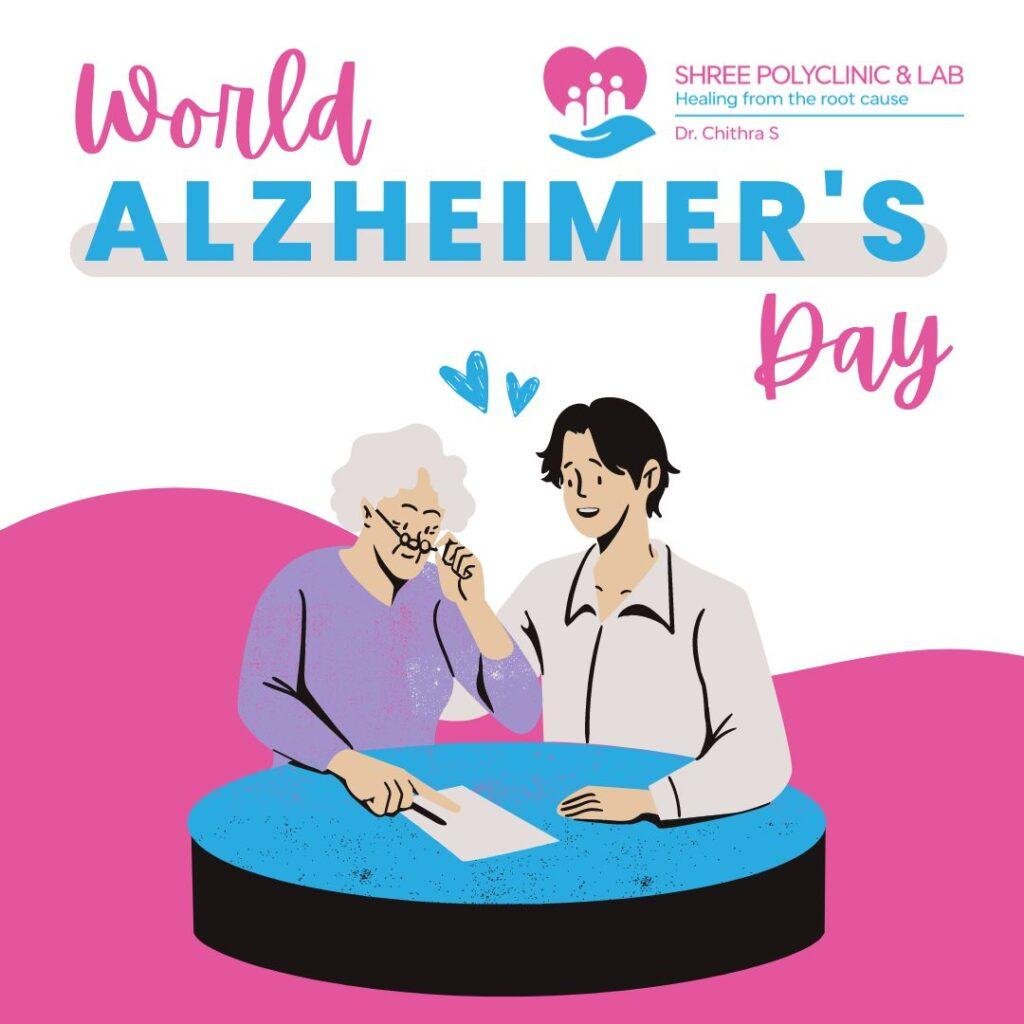Alzheimer’s disease continues to grow as a global health crisis, affecting millions of people worldwide. Every year, World Alzheimer’s Day, observed on September 21, serves as a reminder of the need for increased awareness, support, and research funding to combat this devastating disease. With its prevalence expected to rise significantly in the coming decades, the global community must take swift action to better understand, manage, and ultimately find a cure for Alzheimer’s.
In this blog post, we will explore the global impact of Alzheimer’s disease, share key statistics, and emphasize the importance of raising awareness, supporting caregivers, and increasing funding for Alzheimer’s research.
For more insights on Alzheimer’s disease and brain health, you can visit our previous blog post on Recognizing Early Symptoms of Alzheimer’s. Understanding these early signs can be the first step toward improving the quality of life for patients and caregivers alike.
The Global Impact of Alzheimer’s Disease
Alzheimer’s disease is the most common form of dementia, accounting for 60-70% of all dementia cases worldwide. According to the World Health Organization (WHO), more than 55 million people worldwide are currently living with dementia, and Alzheimer’s is the leading cause. Every 3 seconds, someone in the world is diagnosed with dementia. By 2050, the number of people affected by Alzheimer’s is projected to rise to 139 million.
Here are some alarming global statistics that illustrate the magnitude of the issue:
- 55 million people are currently living with dementia globally, with Alzheimer’s as the most common cause.
- Alzheimer’s and other dementias are the 7th leading cause of death worldwide.
- By 2050, Alzheimer’s cases are expected to rise to 139 million.
- The economic burden of dementia-related care is expected to exceed $2 trillion by 2030.
The rising prevalence of Alzheimer’s is not only a medical challenge but also has profound impacts on families, caregivers, healthcare systems, and national economies.
Why is Alzheimer’s Disease on the Rise?
Several factors are driving the rapid increase in Alzheimer’s disease cases globally:
- Aging Population: The risk of developing Alzheimer’s increases with age. As the global population grows older, more individuals are at risk. In fact, by the year 2050, the global population aged 65 and older is projected to reach 1.5 billion.
- Unhealthy Lifestyles: Sedentary lifestyles, poor diets, and stress have contributed to rising rates of Alzheimer’s. Conditions such as obesity, diabetes, hypertension, and high cholesterol are closely linked to the disease. You can learn more about how a balanced diet and exercise can reduce Alzheimer’s risk in one of our earlier blogs.
- Delayed Diagnosis: In many low- and middle-income countries, Alzheimer’s often goes undiagnosed or is diagnosed too late due to limited access to healthcare, awareness, and social stigma. Early diagnosis is crucial for better management of symptoms, as we have discussed in our guide to early detection.
The Economic Burden of Alzheimer’s Disease
The economic impact of Alzheimer’s is enormous, with dementia-related care costs steadily rising. In 2020, the global cost of dementia care was estimated to be $1.3 trillion, and this figure is expected to rise above $2 trillion by 2030. These costs include direct medical expenses, such as hospitalization, medications, and physician visits, as well as indirect costs like lost productivity and the heavy burden on caregivers.
Caregivers—often family members—provide much of the unpaid care for Alzheimer’s patients, which places a significant financial strain on families. In the U.S., for instance, over 16 million caregivers provide unpaid care to Alzheimer’s patients, as highlighted in our previous post on Supporting Alzheimer’s Caregivers.
Why Research and Awareness Matter
Despite the growing number of Alzheimer’s cases, research remains underfunded. While treatments exist to help manage symptoms, there is currently no cure. Increased investment in research is critical for developing better treatments, and perhaps one day, a cure.
Awareness campaigns like World Alzheimer’s Day play a vital role in educating the public about the disease, encouraging early diagnosis, and advocating for greater research funding. Increased public understanding of Alzheimer’s symptoms and early warning signs can improve outcomes, especially when patients can access treatment sooner.
How You Can Support the Fight Against Alzheimer’s
This World Alzheimer’s Day, there are several ways you can help make a difference in the fight against Alzheimer’s:
- Educate Yourself and Others: Knowing the early symptoms of Alzheimer’s, such as memory loss, confusion, and changes in behavior, can help with early detection. For more on the early signs of Alzheimer’s, check out our detailed blog post Recognizing Alzheimer’s Early.
- Support Alzheimer’s Research: Donations to organizations like Alzheimer’s Disease International and the Alzheimer’s Association support ongoing research. Every contribution helps move us closer to finding better treatments and a potential cure.
- Offer Support to Caregivers: Alzheimer’s takes a heavy toll on caregivers. Offering practical help, emotional support, or respite care can make a huge difference in their lives. You can read more about how to support caregivers in our post on Caregiver Resources and Support.
- Raise Awareness on Social Media: Use your social platforms to spread the word about Alzheimer’s. Sharing articles, infographics, and key statistics can help spark conversations and reduce the stigma around the disease. Use hashtags like #WorldAlzheimersDay, #EndAlz, and #BrainHealth to join the global conversation.
Conclusion: A Call to Action
Alzheimer’s disease is not just a personal or familial challenge—it is a global public health crisis that demands collective action. With over 55 million people currently affected by the disease, and numbers expected to rise rapidly, we must prioritize awareness, research, and caregiver support.
This World Alzheimer’s Day, let’s join forces to raise awareness, support Alzheimer’s patients and caregivers, and push for more research funding. By educating ourselves and advocating for change, we can help bring hope to millions affected by this debilitating disease.
Sources:
Alzheimer’s Association: Alzheimer’s Facts and Figures
World Health Organization (WHO): WHO Dementia Fact Sheet
Alzheimer’s Disease International: World Alzheimer’s Report

